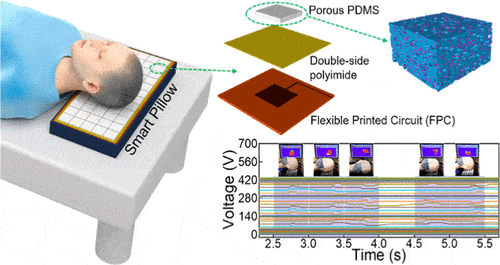The human body needs sleep as much as it needs food and water, yet many people don't get enough sleep, causing both mind and body problems.
Those tossing and turning on their pillows because of sleep disturbances might benefit from monitoring their body, but they don't have many options today.
In a new study published in ACS Applied Materials & Interfaces (I link it here), a research team describes a potential solution: a self-powered smart pillow that tracks head position.
How do you try to manage sleep today
Many studies link chronic sleep deprivation to physical ailments, such as diabetes and heart disease, and to mental health problems.
Today, those who want to better manage what happens to them at night have only two choices. He can take a sleep test conducted in a medical facility, or he can use an app via a smartphone or smartwatch – much more convenient, but less accurate.
For some time now several study groups have started developing new sleep monitoring systems. Self-powered devices that make use of triboelectric nanogenerators (TENG), which took the form of eye masks, belts, patches and even sheets.
A smart pillow
Ding Li, Zhong Lin Wang and colleagues used this approach to create an even more comfortable device that powers itself by moving the head during sleep, and at the same time monitors that very movement. A pillow.
To build this new smart cushion, the researchers created a flexible and porous polymer triboelectric layer. Movement between the head and this layer changes the electric field around nearby electrodes, generating a current.
Multiple self-powered sensors of this type have produced a flexible and breathable TENG (FB-TENG) array that can be placed on top of a regular pillow.

How does it work?
This system generates a voltage corresponding to the applied pressure, with such precision that it could track the movement of a finger drawing letters. Working with the pillow, the FB-TENG captures the pressure distribution of a head, and all its changes in position.
The applications? So many. From monitoring sleep to monitoring neck posture after trauma and degenerative diseases (such as cervical spondylosis).
I also see more immediate and simple things: a baby pillow that warns if they are about to fall out of bed?
Okay, I'll go back to sleep.


